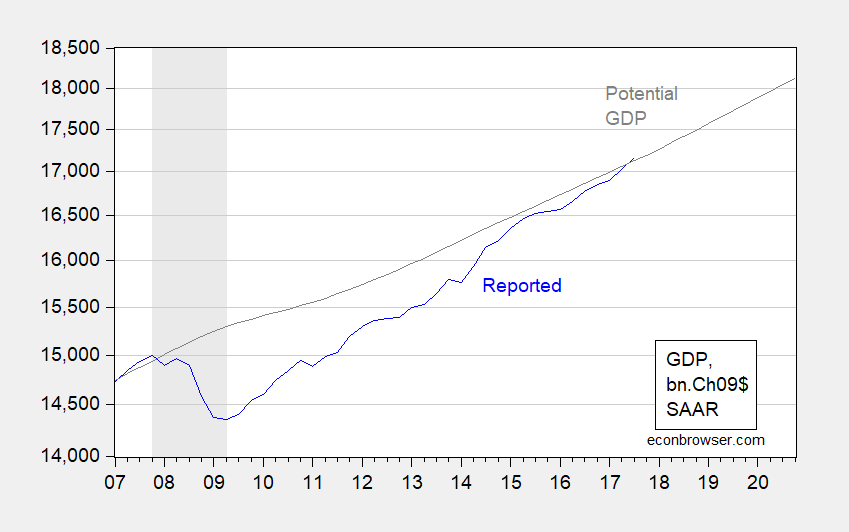The Senate parliamentarian ruled the trigger to prevent a revenue shortfall as unacceptable, thereby temporarily stymieing the bill.
This is just as well, as the trigger would have been procyclical, raising tax rates if the economy hit a recession. The current working concept — to reduce the tax reduction by $350 billion — makes a lot more sense from a macroeconomic perspective.
That’s because we’re already at full employment. Cutting taxes in this situation risks overheating the economy if the Fed does not respond, and worsening trade deficits if the Fed does not.

Figure 1: GDP (blue) and potential GDP (gray) in bn. Ch.2009$ SAAR, on log scale. NBER defined recession dates shaded gray. Source: BEA, 2017Q3 3rd release, and CBO (June 2017).
So, the smaller, the better. Of course, even better would be a revenue neutral, progressive, tax reform, but I don’t see anything like a middle-class-friendly package coming from this group.













Leave A Comment